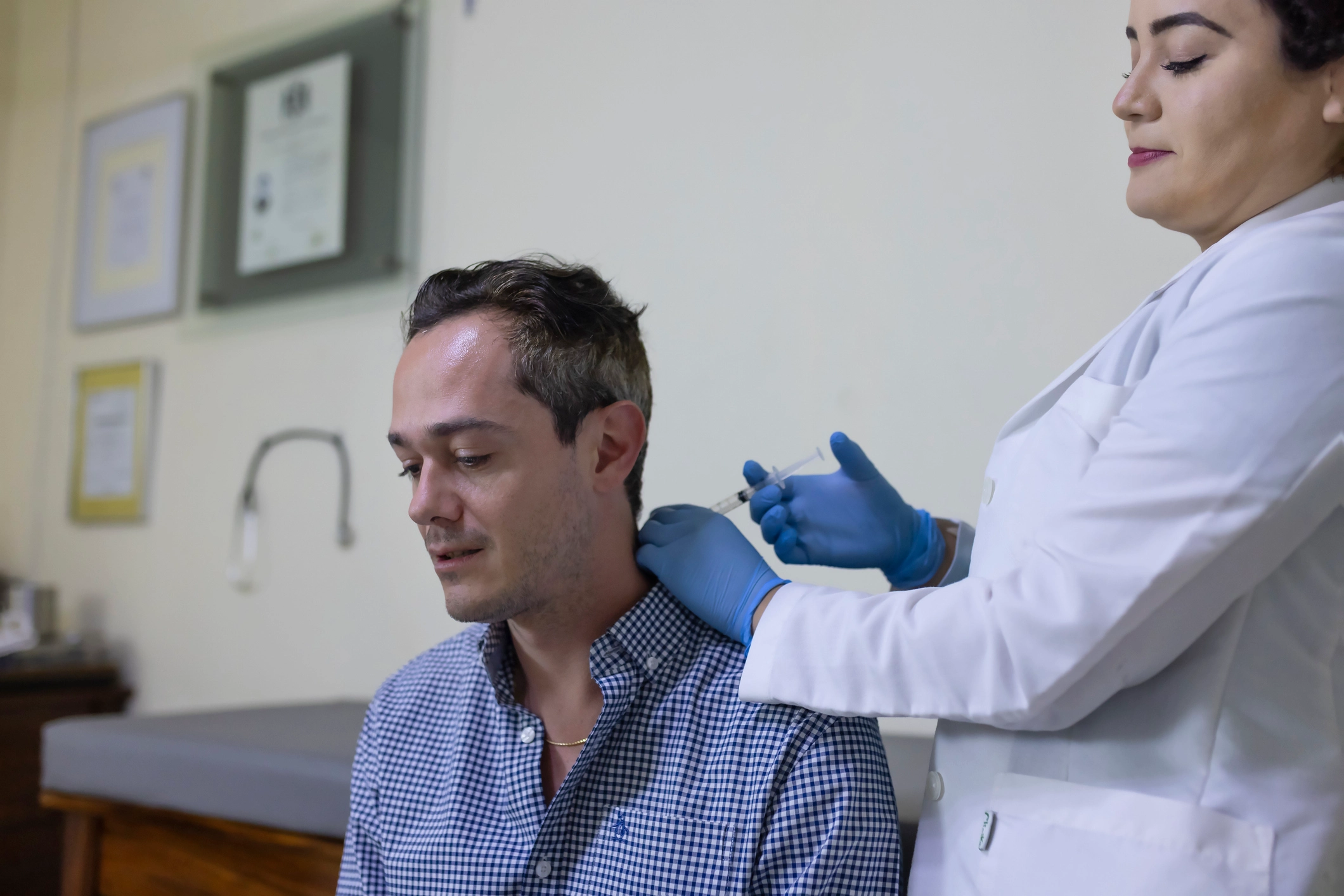Get Help For Tension Headaches
Tension headaches are a common yet debilitating form of headache that can cause intense, throbbing pain lasting from 30 minutes to an entire week. These headaches can significantly affect your daily activities and disrupt your ability to get a good night’s sleep.
At NextPain Care, we understand the impact of tension headaches. Our approach focuses on long-term relief by reducing pain through evidence-based, minimally invasive treatments, helping you manage your day with minimal disruption.
Schedule Your Consultation!

What we do
Alleviate Tension Headaches and Their Dull Aching Pains
Tension headaches are a common and debilitating condition, causing dull, aching, and often throbbing pain that can leave you incapacitated for hours, sometimes even days. Chronic tension-type headaches (CTTH) occur when a person experiences tension headaches at least 15 days a month, affecting roughly 4 percent of the population.
Living with regular tension headaches is incredibly challenging. These headaches can disrupt your life at any moment, and the constant worry of an impending headache can prevent you from fully enjoying life.
At NextPain Care, we offer a multidisciplinary approach to treating tension headaches with personalized treatment plans. These plans integrate massage therapy, medication, and advanced procedures as needed. Our goal is to provide relief and help you regain control over your life.
-
Avoiding social activities in fear of pain
-
Staying in bed all day waiting for the pain to subside
-
Leaving commitments early due to discomfort
-
Difficulty concentrating and being productive
-
Experiencing heightened anxiety and stress from anticipating the next episode
-
Engaging in social activities with reduced worry
-
Remaining active and participating in daily routines
-
Staying through commitments without interruption
-
Improving focus and productivity
-
Reducing anxiety and stress with better pain management

How Can We Help You?
Understanding the Causes of Tension Headache Pain
Tension headaches occur due to muscle contractions in the head and neck. These contractions cause pain on one side of the head or throughout, leading to a dull, aching sensation that can persist for several hours or even days.
This pain is often accompanied by tightness or pressure in the front, sides, or back of the head, as well as tenderness in the scalp, shoulders, or neck. Factors contributing to these muscle contractions include stress, depression, dehydration, and head injuries.
Start Today




